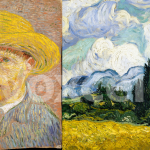Below are the sample questions and answers for IELTS Speaking Part 1 Introduction: ‘Making Friends’. Each answer by Voxcel is written on Band 9 parameters. Click here to read how to structure your answers in your IELTS speaking test.
Each Topic of Part 1 covers questions of different types, including different tenses, to help you practice in the best way possible.
IELTS SPEAKING TOPICS PART 1 – MAKING FRIENDS
- Is it easy for you to make new friends? Why or why not?
Answer: I find it relatively easy because I’m open-minded and enjoy meeting new people. Starting conversations comes naturally to me, and I try to find common ground quickly. On top of that, being genuinely interested in others helps build rapport.
- What qualities do you look for in a friend? Why?
Answer: Honesty, kindness, and a good sense of humour are key qualities I value. A true friend listens without judgment and supports you through thick and thin. You should be able to speak your mind without worrying about being understood. Ultimately, trust and mutual respect form the foundation of lasting friendships—they’re essential.
- Have you ever made a friend in an unexpected situation? What happened?
Answer: Yes. Once, I struck up a conversation with a stranger during a delayed flight. We shared stories and laughter, and it turned a frustrating situation into something positive. We ended up becoming close friends. We are still in contact and go on various road trips every now and then. This incident taught me that connections can be made anywhere.
- Would you say making friends becomes harder as we grow older? Why?
Answer: Yes, adulthood brings busier schedules and fewer opportunities to meet new people. As we grow older, existing circles feel secure because we know we can trust them, but trusting new people becomes increasingly difficult, and stepping out of our comfort zone also takes effort.
- Can you recall a time when a friendship changed your life? How did it happen?
Answer: Certainly, a few years ago, my childhood friend introduced me to volunteering, which sparked my passion for helping others and transformed my life. Before that, I had always thought of helping others, but I couldn’t find a way to do so. Since then, I’ve been active in this field and have pursued many meaningful projects. It was a turning point. Indeed, friendships often shape who we become.
- Do you think social media helps in making friends? Why?
Answer:Definitely, yes. Social media connects people globally, allowing friendships to form beyond geographical boundaries. You can find like-minded people easily by following pages dedicated to a particular activity on Instagram, Facebook or Snapchat. However, online interactions may lack depth compared to face-to-face connections, and there is always the danger of impersonation by someone.
- Are there any challenges in maintaining friendships over time? Why?
Answer: Absolutely. Issues like distance, differing priorities, or misunderstandings can strain friendships. If you’re not in frequent contact with your friends or there’s always tension between you because of political viewpoints or other ideologies, your friendship is bound to doom. Also, life changes like moving cities or starting families require extra effort to stay connected.
- How do friendships influence your decisions or lifestyle?
Answer: Friends introduce fresh perspectives and encourage me to try new things, like travelling or picking up hobbies. Their support boosts confidence in pursuing goals. For instance, many of my career choices stemmed from their advice, which I consider invaluable. Without them, I may not be the person I am today.
- Do you think cultural differences affect how people make friends? Why?
Answer: Without a doubt, different cultures have different approaches to friendship. Some cultures prioritize formal introductions, while others embrace casual meetups. For example, in India, asking for help from a friend or visiting their home without informing them beforehand is quite common, whereas in Western cultures, this may be seen as rude. However, understanding these nuances can foster cross-cultural bonds.
- Are there any types of friendships you dislike? Why?
Answer: Superficial or one-sided friendships drain energy because they lack authenticity and reciprocity. I believe genuine connections should uplift, not weigh you down. For instance, if you’re always making plans and the other person seems uninterested, you’ll eventually have to give up on them. To sum it up, surrounding yourself with those who want you in their life matters the most—it’s non-negotiable.
- If you could give advice on making friends, what would it be?
Answer: The best advice would be to be patient and authentic because friendships take time to develop naturally. If you’re not honest, sooner or later, it’ll come back to haunt you, and years of trust can be broken instantaneously. Also, show interest in others, listen actively, and don’t force connections. What’s meant to be yours will find its way.
- If you could relive a moment from a friendship, what would it be and why?
Answer: I’d relive a road trip with my best friend, which was filled with laughter, deep conversations, and unforgettable adventures. Those moments strengthened our bond and created memories I’ll cherish forever. Whenever I’m down, I usually think about it to uplift my mood.
Note: We have written questions and answers for all the IELTS Speaking Topics of Part 1. Click here to assess them. We aim to help the students as much as possible. We have also written IELTS Speaking Cue Cards, including their Part -3 on the scale of Band 9. However, we don’t promote cramming.
All the content on the Voxcel website is solely copyrighted and owned by us. If anyone copies and is found to be stealing, we reserve the right to take a copyright strike or necessary legal action. Feel free to browse our website for sample questions and answers.




